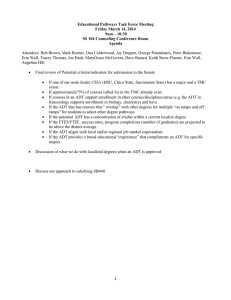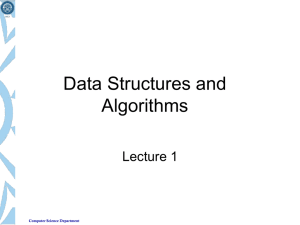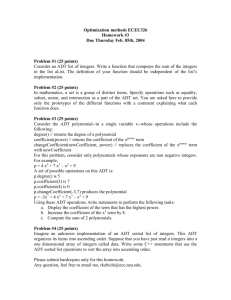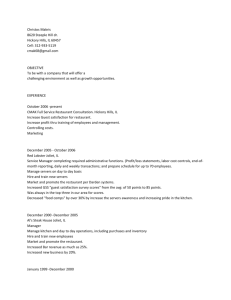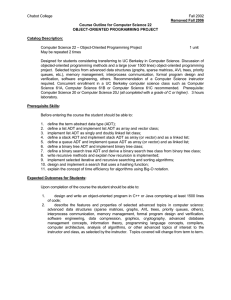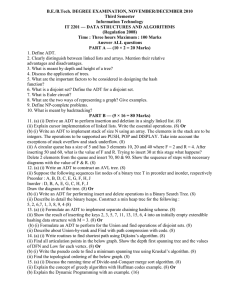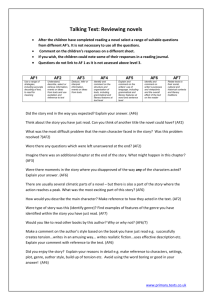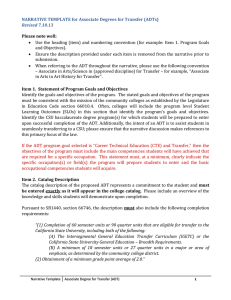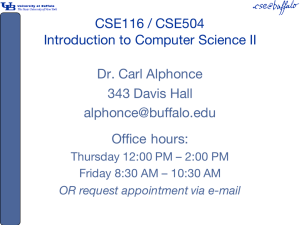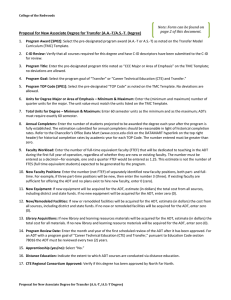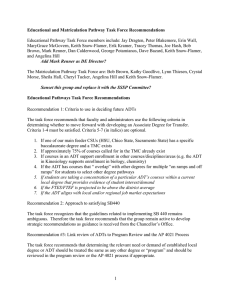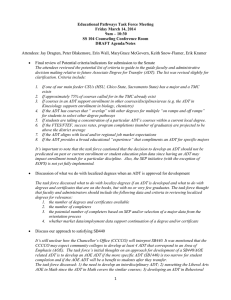2.4 Exceptions Detects
advertisement
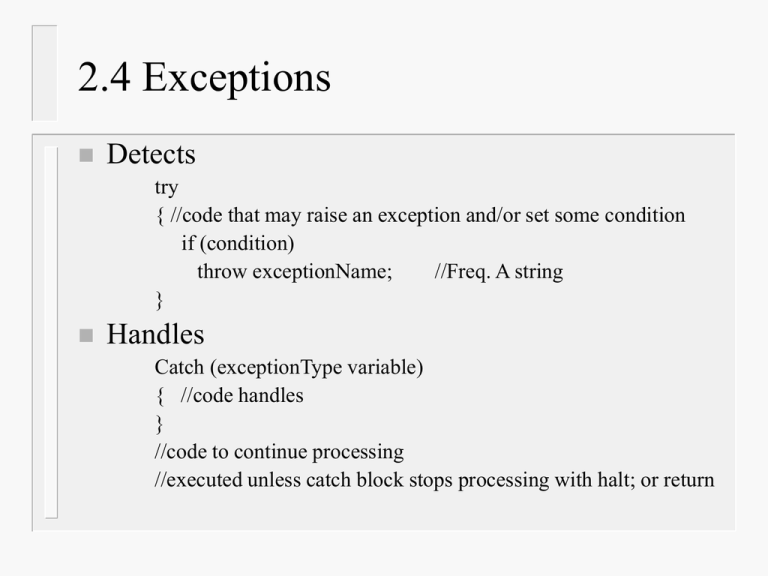
2.4 Exceptions
Detects
try
{ //code that may raise an exception and/or set some condition
if (condition)
throw exceptionName;
//Freq. A string
}
Handles
Catch (exceptionType variable)
{ //code handles
}
//code to continue processing
//executed unless catch block stops processing with halt; or return
Example
…
try
{ infile >> value;
if (value < 0 )
throw string (“Negative value”);
y = sqrt (value);
}
catch (string message )
{ //code handles
cout << message << “found in file. Abort.”;
return –1
}
//code to continue if exception not thrown
cout << “sqrt of “ << value << “is “ << y << endl;
Types to throw and catch
– for messages
ints – to use in a case to handle different
reasons exception thrown
strings
Specifying Functions
Up to now Purpose/Receives/Returns
Text Book uses Pre- and Post-conditions
Pre-condition: describes what must be true
about the state for the function to work
correctly
Post-condition: describes what will be true
about the state if the pre-conditions are met
Specifying Functions cont.
– discusses appropriate
values for receives parameters and
member data of object if it is a member
function we are specifying
Post-condition – describes what the
return variables values will be and what
changes will be made to the object
Precondition
Error Conditions
Describe what preconditions will be checked
by the function (might use try/catch)
Primary vs Enhanced Operations
Primary -Member
functions
–
–
Constructor
Transformers
–
Observers
–
Change 1 piece of ADT
Add 1 piece to ADT
Delete 1 piece of ADT
Accessors – look at 1
piece of ADT
Predicates – return a bool
value regarding state of
ADT
Destructor
Enhanced - Non-member
functions
– manipulate many pieces of
ADT (iterators)
– manipulate several pieces of
ADT
– Manipulate several
instances of same type of
ADT
– Call primary operations to
get work done
#ifndef
#ifndef FILE_H
#define FILE_H
#endif
